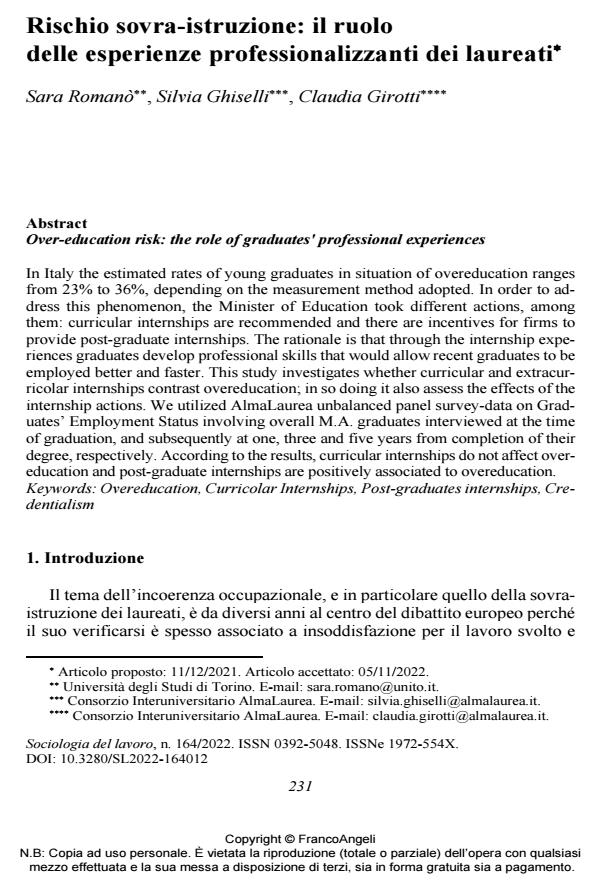Over-education risk: the role of graduates' professional experiences
Journal title SOCIOLOGIA DEL LAVORO
Author/s Sara Romanò, Silvia Ghiselli, Claudia Girotti
Publishing Year 2022 Issue 2022/164
Language Italian Pages 25 P. 231-255 File size 295 KB
DOI 10.3280/SL2022-164012
DOI is like a bar code for intellectual property: to have more infomation
click here
Below, you can see the article first page
If you want to buy this article in PDF format, you can do it, following the instructions to buy download credits

FrancoAngeli is member of Publishers International Linking Association, Inc (PILA), a not-for-profit association which run the CrossRef service enabling links to and from online scholarly content.
In Italy the estimated rates of young graduates in situation of overeducation ranges from 23% to 36%, depending on the measurement method adopted. In order to ad- dress this phenomenon, the Minister of Education took different actions, among them: curricular internships are recommended and there are incentives for firms to provide post-graduate internships. The rationale is that through the internship expe- riences graduates develop professional skills that would allow recent graduates to be employed better and faster. This study investigates whether curricular and extracur- ricolar internships contrast overeducation; in so doing it also assess the effects of the internship actions. We utilized AlmaLaurea unbalanced panel survey-data on Grad- uates’ Employment Status involving overall M.A. graduates interviewed at the time of graduation, and subsequently at one, three and five years from completion of their degree, respectively. According to the results, curricular internships do not affect over- education and post-graduate internships are positively associated to overeducation.
Keywords: Overeducation, Curricolar Internships, Post-graduates internships, Cre- dentialism
Sara Romanò, Silvia Ghiselli, Claudia Girotti, Rischio sovra-istruzione: il ruolo delle esperienze professionalizzanti dei laureati in "SOCIOLOGIA DEL LAVORO " 164/2022, pp 231-255, DOI: 10.3280/SL2022-164012